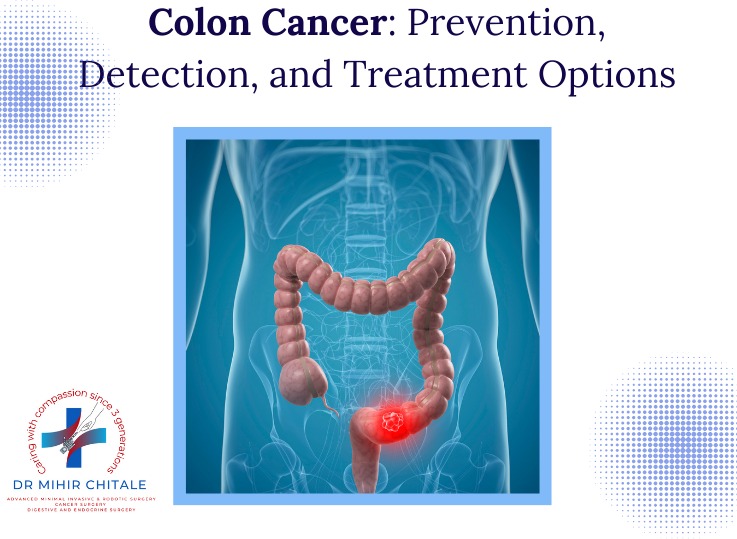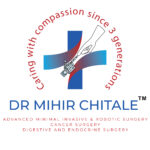
Colon Cancer: Prevention, Detection, and Treatment Options
Colon cancer, also known as colorectal cancer, is a type of cancer that occurs in the colon or rectum. It is the third most common cancer in the world and the second leading cause of cancer deaths. In this blog, we will discuss the risks, symptoms, and treatment of colon cancer.
Risks of Colon Cancer:
There are several risk factors that increase the likelihood of developing colon cancer, including:
Age: Colon cancer is more common in people over the age of 50.
Family history: If you have a family history of colon cancer or polyps, you are at a higher risk of developing the disease.
Inherited syndromes: Certain inherited syndromes, such as Lynch syndrome and familial adenomatous polyposis (FAP), increase the risk of colon cancer.
Personal history: If you have had colon cancer before, you are at a higher risk of developing it again.
Lifestyle factors: A diet high in red and processed meats, lack of physical activity, smoking, and obesity can increase the risk of colon cancer.
Symptoms of Colon Cancer:
In the early stages, colon cancer may not cause any symptoms. However, as cancer grows, you may experience the following:
Changes in bowel habits: This can include diarrhea, constipation, or a change in the consistency of your stool.
Blood in the stool: This can be bright red or dark and can be a sign of bleeding in the colon.
Abdominal pain: You may experience cramping or abdominal pain that does not go away.
Fatigue: You may feel tired or weak even if you have not done anything strenuous.
Unexplained weight loss: You may lose weight without trying.
If you experience any of these symptoms, it is important to see your doctor for an evaluation.
Treatment of Colon Cancer:
The treatment of colon cancer depends on the stage of cancer and the patient’s overall health. The main treatment options include:
Surgery: This is the most common treatment for colon cancer. The surgeon removes the cancerous tissue and nearby lymph nodes.
Chemotherapy: This treatment uses drugs to kill cancer cells.
Radiation therapy: This treatment uses high-energy radiation to kill cancer cells.
Targeted therapy: This treatment uses drugs that target specific proteins or genes that contribute to the growth of cancer cells.
In some cases, a combination of treatments may be used to treat colon cancer.
Conclusion:
Colon cancer is a serious disease that can be treated if caught early. It is important to be aware of the risk factors and symptoms of colon cancer and to see a doctor if you experience any of these symptoms. With early detection and treatment, the prognosis for colon cancer is good.

